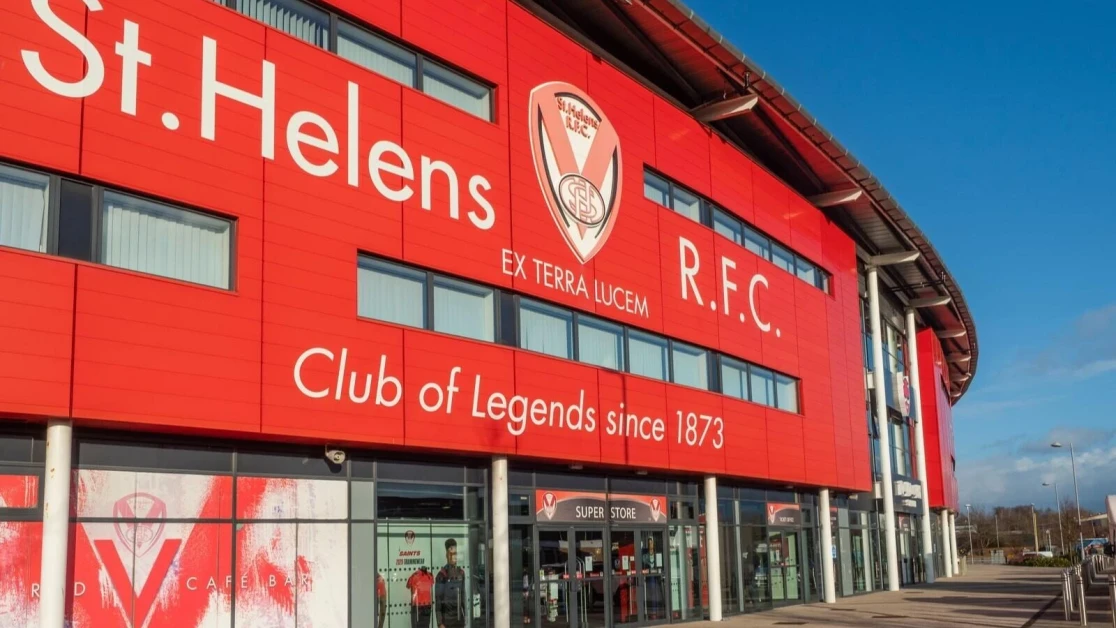
With over 100 different betting sites, finding the best can be confusing. I'll guide you through the features that matter, so you can find the most suitable bookie for you.
This article paves the way to understanding how Super League Rugby has weathered attempts of expansion beyond Northern England's heartlands. Delve into detail about the unsuccessful expansions, the existing barriers, and the lessons learned. By reading this, you will gain insights into not just the past and present, but also the possibilities that the future of Super League can hold.
Rugby Super League Expansion
As the 2023 Super League Grand Final appears in this weekend’s headlights, it will pit one of the sport’s most recognised names against one of the newest kids on the block. While in doing so, it will also shine a light on the sport’s expansion that has taken place over the past quarter century or so.
With Wigan Warriors taking on the Catalan Dragons, it will not only be a battle between each side’s 13 players on the field, but it will also be a battle between tradition and Rugby League’s upstarts from foreign shores.
Whether the Catalan Dragons go on to win a first Super League title or not, the fact that a non-English side has once again made the final, is testament to when expansion of the sport has been a success.
Unfortunately for every Catalan Dragon success, there have been plenty of other flops when it comes to trying to grow Super League beyond its traditional heartlands of Northern England and one wonders, if such growth can ever be found.
For all the previous attempts and there have been many, such expansion plans have never really captured the imagination on the grandest scale and the usual combination of overspending in terms of player budget and not enough support through the doors has caught many a new team cold.
While you only have to look at the composition of the current edition of Super League to see that there is very little in the way of geographical spread:
| Club | Established | Location |
|---|---|---|
| Castleford Tigers | 1926; 97 years ago | Castleford, West Yorkshire |
| Catalans Dragons | 2000; 23 years ago | Perpignan, Pyrénées-Orientales |
| Huddersfield Giants | 1864; 159 years ago | Huddersfield, West Yorkshire |
| Hull FC | 1865; 158 years ago | Hull, East Yorkshire |
| Hull Kingston Rovers | 1882; 141 years ago | Hull, East Yorkshire |
| Leeds Rhinos | 1870; 153 years ago | Leeds, West Yorkshire |
| Leigh Leopards | 1878; 145 years ago | Leigh, Greater Manchester |
| Salford Red Devils | 1873; 150 years ago | Salford, Greater Manchester |
| St Helens | 1873; 150 years ago | St Helens, Merseyside |
| Wakefield Trinity | 1873; 150 years ago | Wakefield, West Yorkshire |
| Warrington Wolves | 1876; 147 years ago | Warrington, Cheshire |
| Wigan Warriors | 1872; 151 years ago | Wigan, Greater Manchester |
Just five regions are represented by 12 clubs. West and East Yorkshire, Greater Manchester, Merseyside and Perpignan in France. As far as geographical spread is concerned, you will not get much mileage past the M62.
As you can see there is a considerable amount of tradition when it comes to the teams that currently ply their trade in Super League. Bar the Catalans Dragons being formed at the turn of the millennium, you have to go back to 1926 for the next time a club was founded.
Castleford Tigers have been in existence for 97 years and when you average the age of the remaining 10 existing Super League outfits, they collectively celebrate 150 years of existence. There is tradition and then there is the sport of Rugby League in the United Kingdom.
Which begs the question as to how you break through that tradition and get more clubs dining at the top of the Super League table. In essence any new expansion club is giving up a 150 year head start on its soon to be opposition and this is the equation that is so rarely cracked.
Not that the powerbrokers within Rugby League circles have not tried and although failure to truly expand the game has been a sore point over the past 25 years, they must at least be commended for trying over and over again.
A total of 24 teams have played some form of Super League since its inception. The 12 teams that are currently operating in the top tier and 12 teams that either dropped down the divisions or dropped out of the game at all.
We already know the 12 in the top flight, so now we can look at the less glamorous dozen:
| Club | Seasons in Super League | First season in Super League | Last season in Super League | Last top division title** |
|---|---|---|---|---|
| London Broncos | 20 | 1996 | 2019 | N/A |
| Bradford Bulls | 19 | 1996 | 2014 | 2005 |
| Widnes Vikings | 11 | 2002 | 2018 | 1989 |
| Halifax Panthers | 8 | 1996 | 2003 | 1985–86 |
| Sheffield Eagles | 4 | 1996 | 1999 | N/A |
| Crusaders | 3 | 2009 | 2011 | N/A |
| Oldham | 2 | 1996 | 1997 | 1956–57 |
| Paris Saint-Germain § | 2 | 1996 | 1997 | N/A |
| Gateshead Thunder § | 1 | 1999 | 1999 | N/A |
| Workington Town | 1 | 1996 | 1996 | 1950–51 |
| Toronto Wolfpack | 1 | 2020 | 2020 | N/A |
| Toulouse Olympique | 1 | 2022 | 2022 | (N/A) |
For those who follow Rugby and by extension Super League, you will see some familiar names in the table above. At the top of the list are the London Broncos – a team that is arguably the most positive expansion story of all.
The current guise were formed in 1994, when the NRL giants Brisbane Broncos announced that they were to purchase the then named London Crusaders and when an entity with the experience of the Broncos are involved, you know that this is not going to be a fly by night operation.
With their influence, Rugby League finally had a footprint in the south of the country and come 1996, the London version of the Broncos would be playing in the first ever season of the newly created Super League.
1996 being the first season and 19 more would follow between then and 2019, the team from England’s capital may not be with the elite at present, but it is certainly another tick in the positive column when it comes to expansion of Rugby League in the United Kingdom and beyond.
Among the London Broncos are a handful of other traditional northern clubs that are simply on harder times than before. Step forward the likes of Bradford Bulls, Widnes Vikings, Halifax Panthers, Sheffield Eagles, Oldham and Workington Town.
Six clubs that have had a taste of the promised land and will hope to one day return. For the remaining five teams in the table, their stories are ones that are not steeped in success. Instead, they are stories of expansion failure.
Expansion that has been attempted far and wide. The North East of England, Paris and Toulouse in France, North Wales and even Canada have tried to run Super League clubs on a long-term basis, all have failed for a number of reasons.
Three of the five teams that have tried to make it in the big time, do not even exist anymore. The trio of Gateshead, Paris Saint-Germain and Crusaders all crashed and burned within three years of entering the Super League.
In Gateshead’s case, the financial losses in their only season were as much as £700,000 and they would be swallowed up by Hull FC. Some classified this as a merger of the two teams, others believe it was closer to a simple takeover.
While Paris Saint-Germain’s attempts to run a Super League team got off to a decent enough start but then a lack of funding into their second season was always going to hamper them – a scandal regarding undeclared contracts proved to be their ultimate undoing.
In the case of Crusaders, they had a rather nomadic existence around North Wales between the 2009 and 2011 Super League season and after going into administration, they would eventually cease activities after three years in the top tier.
Three expansions have bit the dust, two are still running even if they are running in far different ways. Toulouse Olympique secured promotion to last season’s Super League but the difference in competition would see them return to the Championship in 2023.
The more fascinating story is that of the Toronto Wolfpack. A team that took Super League into a whole new frontier of Canadian size, and it is fair to say that many people hung their hats on this club's fortunes.
After losing to London Broncos at the end of the 2018 ‘Million Pound Game’, the Toronto Wolfpack would agonisingly miss out on promotion to Super League. Fortunately for the Canadian trailblazers, they would not be deterred 12 months later.
With promotion to Super League secured in 2019, the big time had been reached. Unfortunately, the world would be in big trouble in 2020. Covid’s vice-like grip on the globe played havoc for sectors such as sports and travel.
What’s worse than being an inactive Super League outfit? A Super League outfit that cannot enter the country where most fixtures are played. Suddenly the Toronto Wolfpack project becomes largely unsustainable.
What happens when a project becomes largely unsustainable? The man with the previous deep pockets finds out there is actually some depth to them after all, and the funding is all but cut overnight.
A lack of funding and forced removal from the 2020 Super League to go alongside no inclusion for 2021 and operations as a Super League team would soon cease. The Canadian experiment was over just as quickly as it had begun.
Not only did these circumstances wipe out the Wolfpack, but it also seemingly aborted plans to launch teams in both Ottawa and New York. There was a real sense that Super League was going to transatlantic, but now it does well to go transpennine.
That said, there is a wider geographical footprint in the lower levels of the Super League structure. Not only are the likes of London Broncos and Toulouse Olympique contesting for Championship honours but also a return to the Super League.
However, there is more recent bad news when you go lower down the Rugby League pyramid. In the third tier, London Skolars decided to withdraw from competitive action after the costs involved, Newcastle Thunder have now decided not to enter a team at that level next season.
There may have been signs of life for those teams outside the heartlands, but now the cost of living crisis is having a deeper effect on the running of the sport on a regional basis. First, you have to factor in the lengthy travel costs, and that is before you try and grow a fanbase that is largely alien to the sport.
Because even though these signs of life are on show in places like Cornwall, there is perhaps a sense that expansion in the sense of geography has failed overall, and if the footprint cannot be grown, then at least the number of eyes on the sport can be increased.
This is where the IMG stepped in, and with their blueprint for Super League being accepted, the traditional notion of promotion and relegation in and out of the competition is soon to be no longer a thing.
Instead, each of the teams will be graded on five separate criteria:
- Fandom – 5 Points
On-field performance – 5 Points
Finance – 4.5 Points
Stadium – 3 Points
Community – 2.5 Points
All clubs that are currently operating within Super League, Championship or League One will be ranked on these criteria for a total of 20 points. Score 15, and you will win Category A status. Win Category A status, and you will be guaranteed a place in Super League.
Illustrative gradings for 2024 will be released after the 2023 season, with the 2025 Super League line-up confirmed in the summer of 2024. Doing so allows the teams to know how they will shape up before the gradings come into place.
Some view the grading as a controversial measure, as when the fluid nature of promotion and relegation is removed, the integrity of the sport. However, those who support the idea believe it will bring a much-needed quality threshold into Super League.
No longer can an owner from a new Rugby League outpost simply pump an unstainable amount of money into an expansion club, only for it to then go to the wayside. Now, it is all about teams being around for the long term.
Therefore, in contracting the footprint of Super League, it may inadvertently be better off for it. It may not have the glitz and glamour of the Eiffel Tower, but try telling that to fans who watch their Rugby League in Salford or Wakefield.
Contributor and Source Information
https://en.wikipedia.org/wiki/Super_League
https://en.wikipedia.org/wiki/RFL_Championship
https://en.wikipedia.org/wiki/RFL_League_1
https://en.wikipedia.org/wiki/Toronto_Wolfpack
https://en.wikipedia.org/wiki/Crusaders_Rugby_League
https://en.wikipedia.org/wiki/Paris_Saint-Germain_Rugby_League




